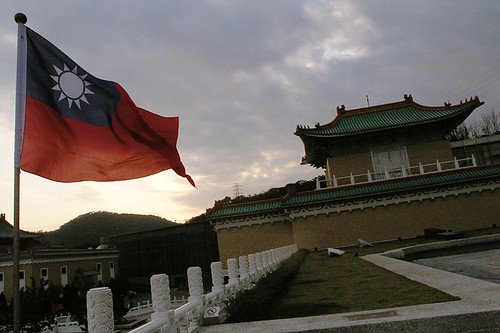In the lead-up to Taiwan’s January elections, concerns over China’s interference loom large. The island nation, which has long enjoyed democratic governance, faces persistent attempts by Beijing to influence the electoral process. A senior Taiwanese security official recently shed light on the multifaceted methods employed by China to sway Taiwan’s elections, including military pressure, economic coercion, and the dissemination of fake news. These revelations were presented during a parliamentary committee session by Taiwan’s National Security Bureau Director-General, Tsai Ming-yen.
Taiwan, a self-governing island, is a constant source of contention between the People’s Republic of China and its government. Beijing, asserting sovereignty over Taiwan, views it as a renegade province that must be reunified with the mainland. Consequently, China seeks to manipulate Taiwan’s elections to favor candidates sympathetic to its cause.
Director-General Tsai emphasized the diversity of tactics employed by the Chinese Communist Party (CCP) in its election interference efforts. These tactics range from overt military pressure to more covert methods like economic coercion and the propagation of fake news. The overarching goal is to create a dichotomy of “war or peace” to intimidate voters and influence the election’s outcome.
Tsai underscored the importance of monitoring the CCP’s collaboration with opinion poll and public relations companies, as they could be instrumental in manipulating public opinion. However, he refrained from naming specific companies involved in these activities.
As concerns about China’s election meddling intensify, it is essential to understand the multifaceted nature of these tactics and the potential consequences for Taiwan’s democratic process.
Military Pressure: A Blunt Tool
One of the more overt methods used by China to influence Taiwan’s elections is military pressure. Beijing has increased its military activities around Taiwan since the last election in 2020. This includes sending warships and fighter aircraft into the seas and skies near the island. These provocative actions are designed to create a sense of insecurity among the Taiwanese population, potentially swaying them towards candidates perceived as more favorable to China.
Taiwan’s Defense Minister has described China’s recent military drills near Taiwan as “abnormal.” While the focus of these drills, such as landing exercises, remains consistent with previous years, there has been a notable increase in the involvement of aircraft and ships. Moreover, the People’s Liberation Army Rocket Force (PLARF), responsible for China’s conventional and nuclear missiles, has conducted more practice firings during these drills.
Director-General Tsai suggested that this heightened military activity could be linked to Chinese President Xi Jinping’s efforts to exert control over the PLARF. The sudden replacement of the PLARF’s two most senior leaders in July raised questions about its leadership and strategic direction. China’s defense ministry has remained tight-lipped about these developments, leaving room for speculation regarding the motivations behind the increased military activities near Taiwan.
Economic Coercion: The Silent Threat
Economic coercion is another weapon in China’s arsenal when it comes to influencing Taiwan’s elections. Beijing has been known to exert pressure on countries and businesses to isolate Taiwan economically. This tactic aims to undermine Taiwan’s economy and create a sense of dependency on China, which can, in turn, affect the island’s political landscape.
By leveraging its economic power and market access, China can encourage foreign governments and multinational corporations to limit their interactions with Taiwan. This not only hampers Taiwan’s international standing but also puts pressure on its leadership to adopt policies that align with Beijing’s interests. Candidates who advocate for closer economic ties with China may gain an advantage in such an environment, further distorting the electoral playing field.
The Dissemination of Fake News
In an era dominated by information and digital communication, the spread of fake news has become a potent tool for influencing elections. China has not shied away from exploiting this medium to its advantage in Taiwan’s electoral landscape.
The dissemination of false information, whether through social media platforms, news outlets, or other online channels, can shape public opinion and sway voters’ perceptions. Fake news can range from baseless accusations against certain candidates to the promotion of conspiracy theories designed to manipulate emotions and beliefs.
Director-General Tsai expressed particular concern about the potential involvement of opinion poll and public relations companies in propagating fake news. These entities can play a pivotal role in shaping public discourse and swaying public sentiment. While Tsai refrained from naming specific companies, the fear of these firms aligning with external actors to manipulate the electoral process is a real and growing concern.
The Ongoing Struggle
Taiwan’s commitment to democracy and its determination to maintain its separate identity from China make it a battleground for competing ideologies and interests. The Chinese Communist Party’s multifaceted approach to interfering in Taiwan’s elections reflects the complexity of this struggle.
Taiwan’s Vice President, William Lai, who hails from the ruling Democratic Progressive Party, is favored to become the next president, according to opinion polls. Lai’s party staunchly advocates Taiwan’s separate identity from China, which has put him and his party on Beijing’s list of separatists. China has consistently rejected offers of dialogue from Lai and his party, maintaining a firm stance on Taiwan’s reunification with the mainland.
In conclusion, China’s attempts to influence Taiwan’s elections are far-reaching and multifaceted. From military pressure and economic coercion to the dissemination of fake news, Beijing deploys a range of tactics aimed at shaping the electoral outcome in its favor. As Taiwan continues to uphold its democratic principles, the struggle to resist external interference and safeguard its sovereignty remains an ongoing challenge.
Read More:
